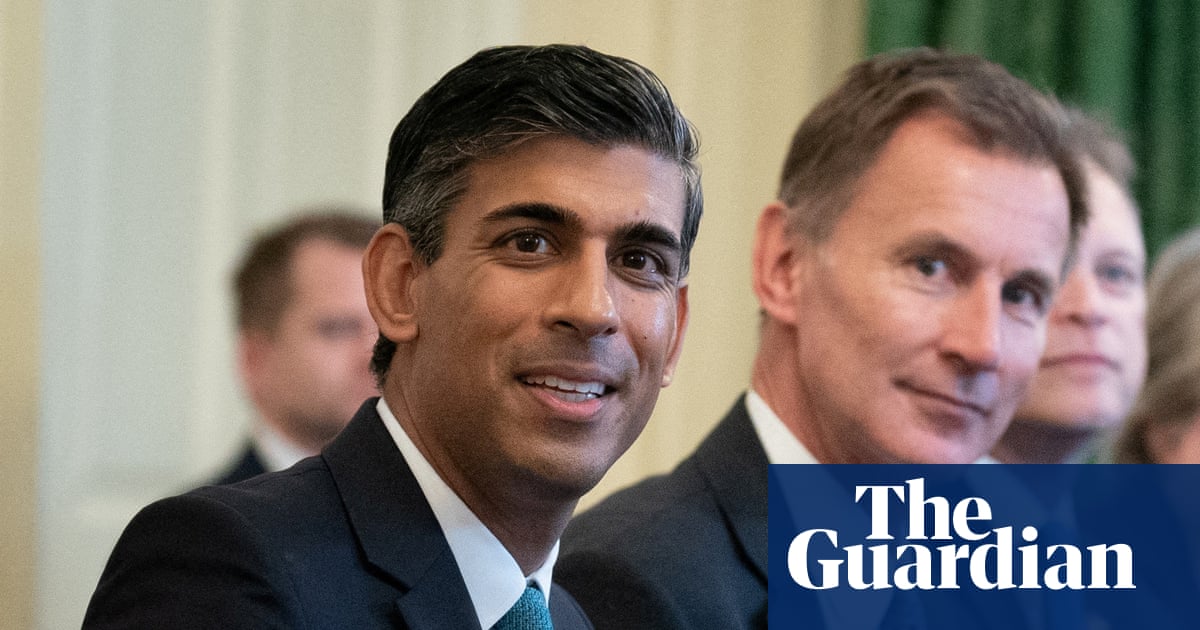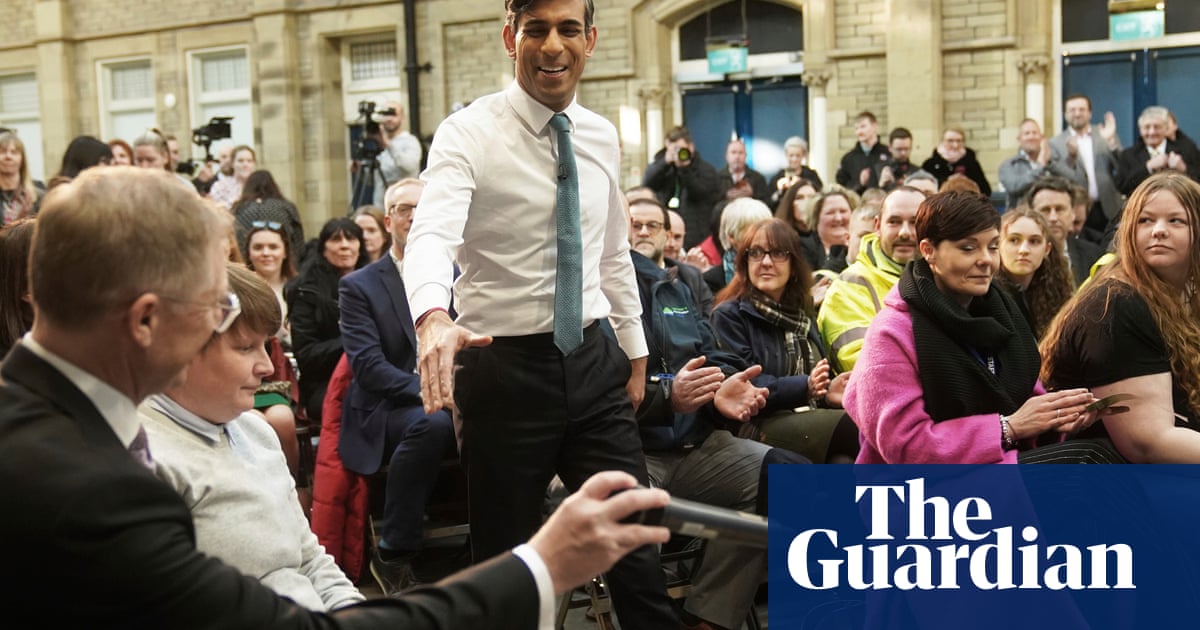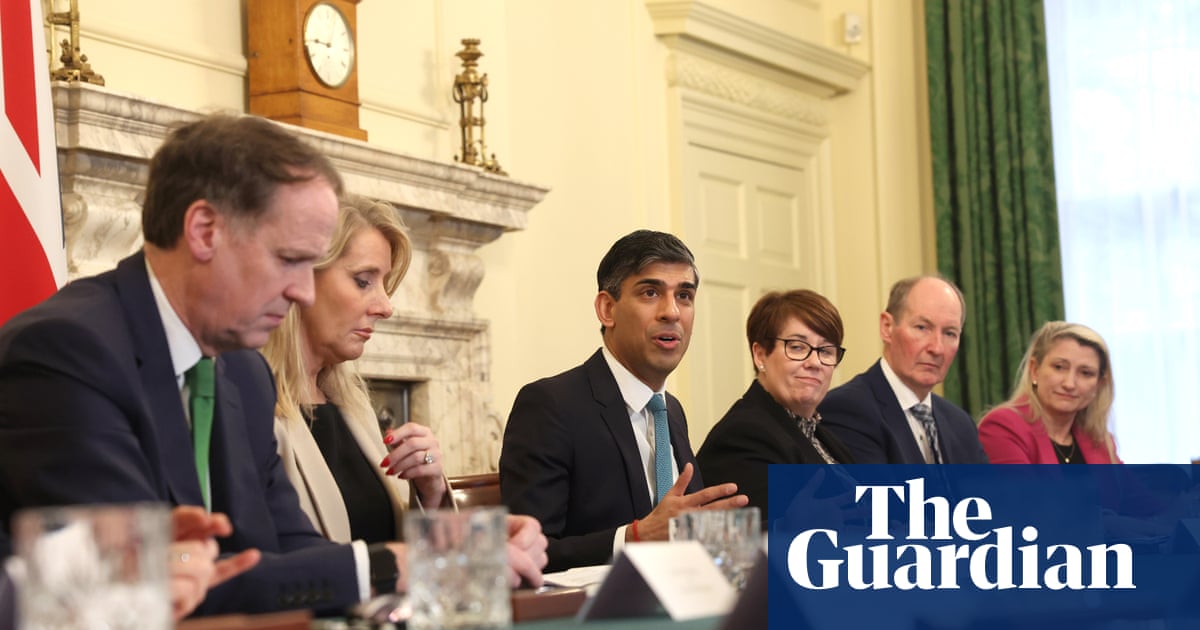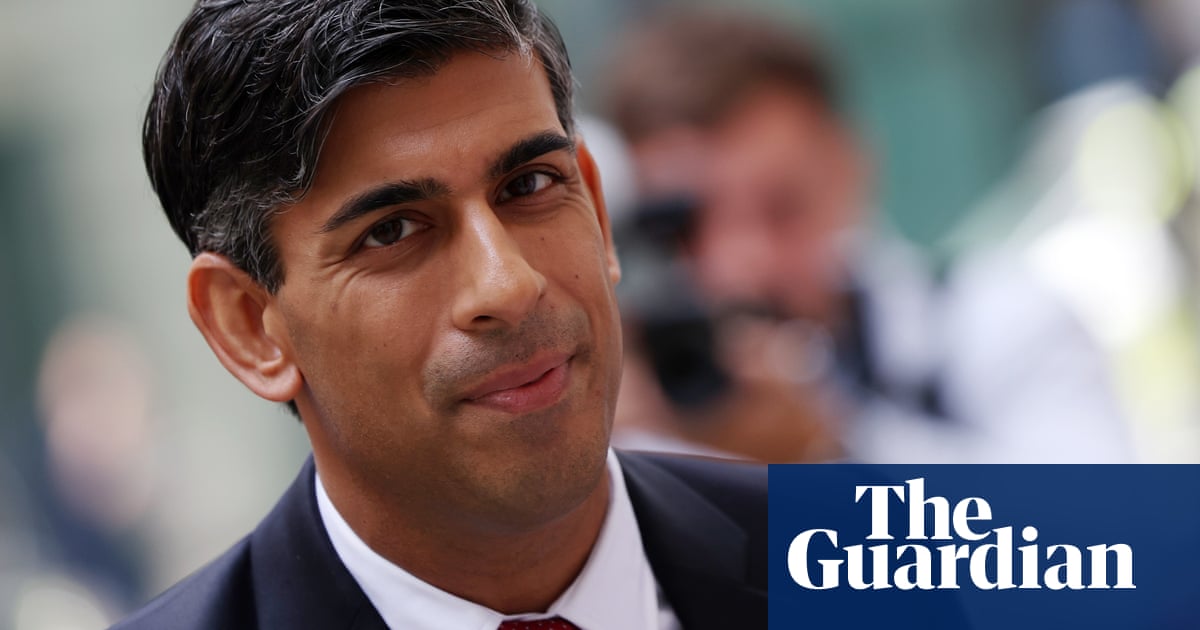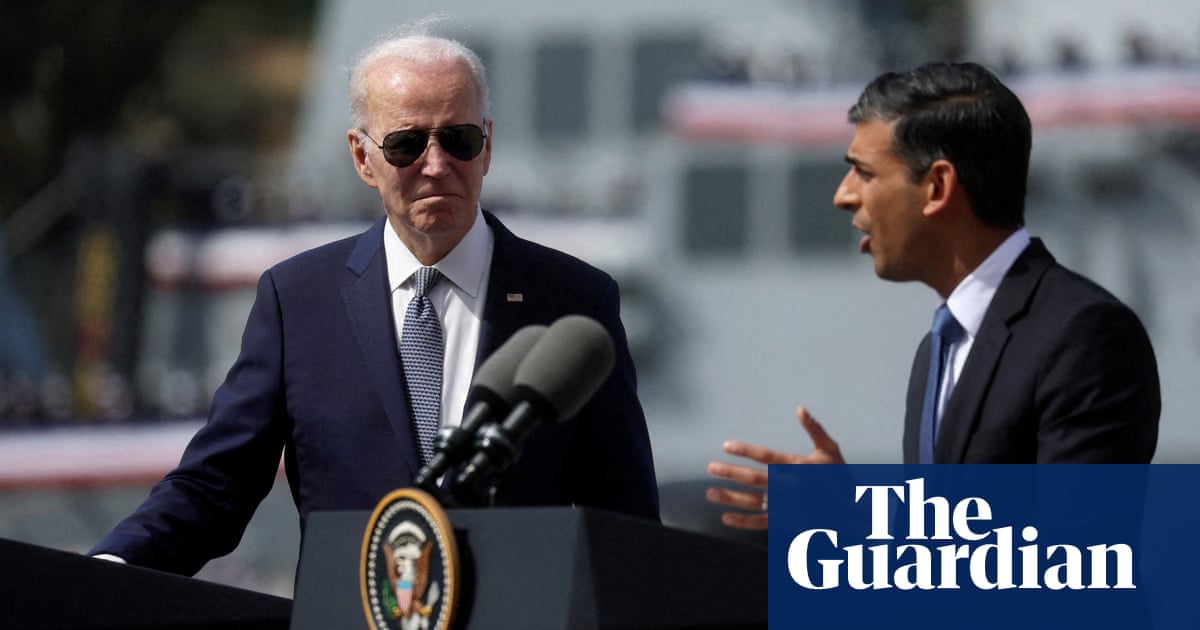
Rishi Sunak has promised that tax increases are “done”, as he dropped a heavy hint that he is preparing measures to tackle the rising cost of living in next week’s spring statement.
The Institute for Fiscal Studies (IFS) said this week that Sunak had announced more tax rises in two years – worth 2% of GDP – than Gordon Brown did in a decade.
With the rise of 1.25 percentage points in national insurance contributions still due to come in April, the chancellor was keen to signal to Tory activists that there were no more nasty surprises ahead.
Speaking at the Conservatives’ spring conference, he said: “I made this very clear at the budget in the autumn: that is done. We’ve made the difficult decisions that we have to make. My priority going forward is to cut taxes.”
After weeks of mounting pressure for the Treasury to cushion the impact of rising prices, Sunak said he had “sympathy” for people struggling in the face of “global inflationary forces” and would consider taking action “where we can make a difference”.
He is widely believed to be looking at a cut in fuel duty, perhaps of 5p, after Russia’s invasion of Ukraine sent the cost of fuel at the pumps soaring.
Such a measure would be enthusiastically welcomed by many backbench Conservatives, but some campaigners are warning against it. Analysis by the New Economics Foundation (Nef) shows just 7% of the benefit goes to the poorest fifth of households.
The thinktank found that one-third of the savings would accrue to the wealthiest fifth of households. In absolute terms it would be worth an average of £1.80 a month to households in the bottom 20% of earners, and £8.20 a month to households in the top 20%.
Alex Chapman, a senior researcher at Nef, said: “If your objective is to support those at the bottom of the income spectrum or those who are most vulnerable, a cut to fuel duty is an incredibly inefficient way to get support to that group.”
Paul Tuohy, the chief executive of the Campaign for Better Transport, agreed. “Given the volatility of fuel prices, cutting fuel duty is not the best way to ease the cost of living crisis. It also isn’t targeted at those most in need,” he said.
“More than a third of the lowest-income households have no car, and people on low incomes are much more likely than high earners to rely on buses. We would like to see moves to make public transport more affordable, which would have the added benefits of reducing our reliance on fuel and tackling climate change.”
Torsten Bell, the director of the Resolution Foundation thinktank, said he believed a 5p cut in fuel duty was now highly likely. “That works in terms of Tory politics. It is not the best policy in the world but politically it is well targeted,” he said.
Russia’s invasion of Ukraine has piled added pressure on Sunak to ease the cost of living in Britain. The Bank of England has said inflation could hit 10% later this year and it is unable to prevent rising energy prices from making people poorer, leaving it up to the chancellor to act.
The Treasury had been keen to avoid next Wednesday’s spring statement being seen as a mini-budget, but Bell said it would be forced to respond. “It will be a big package,” he said. “The Treasury gave up on it being a non-budget about a month ago.”
State benefits are due to rise by 3.1% in April at a time when inflation is expected to exceed 8%, and Bell said Sunak needed to make the increase more generous. “If he goes ahead with a 3.1% increase, that is effectively a £10bn cut in benefits, which is a big risk. Why would he take that risk?”
Neil Shearing, the chief economist at the consultancy Capital Economics, said he expected a £10bn package on Wednesday, including a cut in fuel duty, a temporary VAT cut on utility bills, a lifting of the freeze on tax allowance thresholds and extra help for customers with their energy payments.
Noting that the pain from the cost of living crisis would really start to be felt next month when taxes and energy bills go up, Shearing said: “I can’t believe Rishi Sunak is not going to deliver something. In August there will be an announcement on the energy price cap in October and there is a good chance it will go up again. Things are going to get worse before they get better.”
The independent Office for Budget Responsibility is likely to provide Sunak with the scope to act when it produces new forecasts for the public finances on Wednesday. Lower than expected unemployment means the OBR is set to reduce its estimate of the long-term damage from the pandemic, while higher inflation has increased the amount of money Sunak will get from freezing tax allowances.
The Institute for Fiscal Studies said this week the Treasury had been expecting to get £8bn a year from the move but would actually receive £20.5bn.





